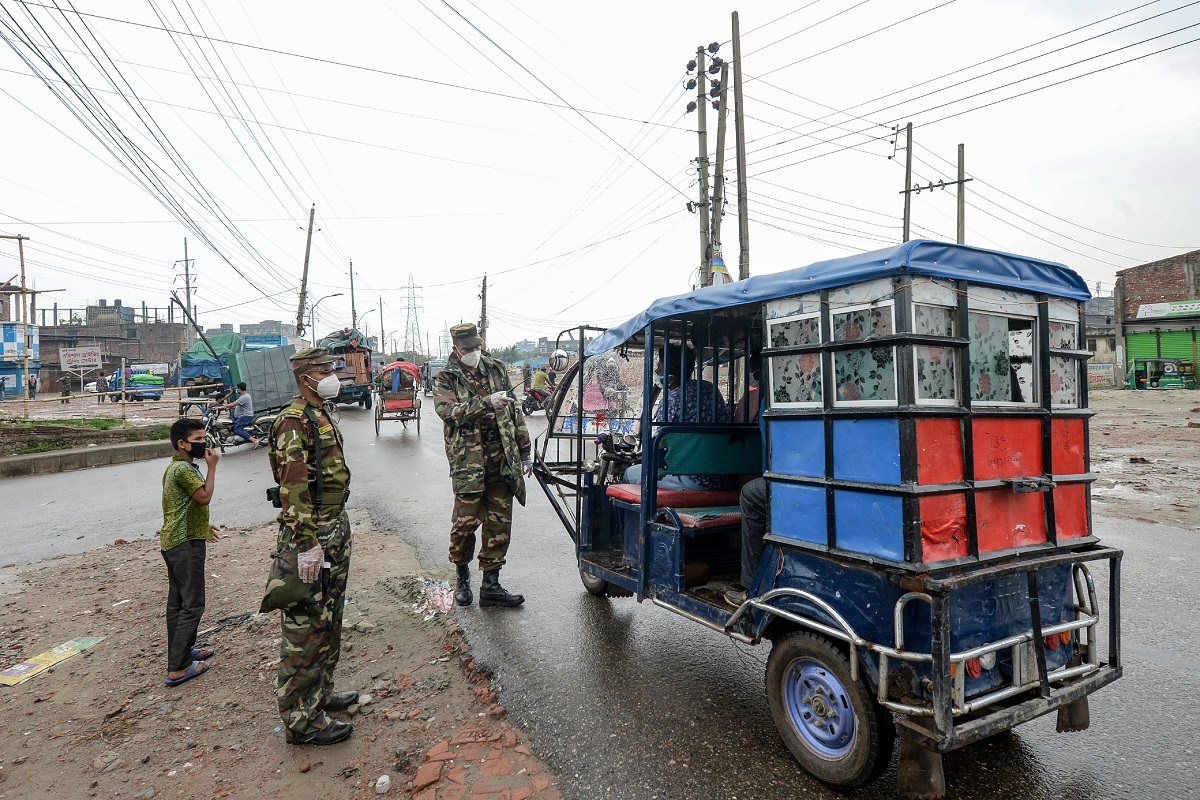BSF intercepts Bangladeshi woman crossing border
Amid rising tensions in Bangladesh, reports suggest that some individuals are attempting to cross the India-Bangladesh border illegally, seeking to settle in India.
The travel restrictions will begin four days before Eid and continue for two days after the festival.

Security personnel stop a motorist at a checkpoint along a road during a government-imposed lockdown as a preventive measure against the COVID-19 coronavirus, in Dhaka on May 1, 2020. (Photo by MUNIR UZ ZAMAN / AFP)
Strict restrictions will remain on public transports and inter-district travels across Bangladesh until May 30 during the extended shutdown, according to the government on Thursday.
Citizens have been asked to remain indoors, according to the notice issued on Thursday. People will be barred from leaving homes, except for emergency purposes, between 8 pm and 6 am, bdnews24 reported.
On Thursday, the country confirmed 14 new fatalities from the coronavirus infection, raising the body count to 283.
Advertisement
The caseload soared to 18,863 after 1,041 people tested positive for COVID-19.
Speaking to bdnews24 about the plans, State Minister for Public Administration Farhad Hossain earlier said that citizens would to be ordered to spend the Eid-ul-Fitr days in their own areas.
The government would also put strict curbs on travels for seven days before and after the festival, the Minister further added.
The travel restrictions will begin four days before Eid and continue for two days after the festival.
No vehicles, including cars, will be allowed on the roads during the period.
“Road transport, water transport, rail communication and domestic flights will remain closed. Only vehicles of emergency services will be allowed to run,” the government said in Thursday’s notice.
In keeping with the hygiene rules to reduce the risk of contagion, mosques are not allowed to use common carpets for prayers while devotees are required to carry individual prayer mats from home.
The shutdown of all offices, workplaces and public transport system has been in place since March 26 after the detection of the first coronavirus cases and fatalities in Bangladesh.
The government had extended it several times to May 16 at the earliest, but eased some curbs such as allowing factories to reopen.
Advertisement